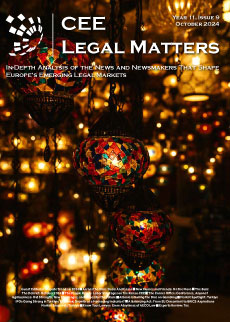As one of the few “foreign” lawyers who has been continuously active on the Romanian market for the last 20 years, it is interesting to note the evolution of this market over that period.
I first came to Romania as a representative of the American Bar Association’s Central and Eastern European Law Initiative (CEELI) from August 1996 to August 1997. At CEELI, we advised relevant stakeholders in numerous areas, including: (i) strengthening the independence of the local judiciary; (ii) working with regional Bar Associations; and (iii) providing “best practice” templates of model US laws for consideration in Romania.
It is important to remember the historical context here – Romania had begun the process of transforming from a central command economy to a free market economy only six years before I arrived in the country. Hence, many of the “rules of the game” that we now take for granted in a market economy simply didn’t exist at that time.
For example, during my stint at CEELI, we worked on projects benchmarking certain recently-adopted (or soon to be adopted) legislation against analogous US legislation in areas like: (i) Bankruptcy (addressing certain deficiencies in the law adopted in 1995); (ii) Antitrust (Competition) (which had first been addressed in a law that had been adopted only a few months before my arrival in Romania in 1996); and Secured Transactions (the concepts of which were eventually addressed in different laws adopted in 1999, 2011, and early 2019).
In this regard, Romania really was the “Wild East,” with either incomplete (or completely missing) commercial legislation to attract and reassure investors in Romania that they would be protected. Nonetheless, despite these deficiencies, lawyers in Romania needed to adequately advise those investors willing to enter the Romanian market at that time.
Hence, when I returned to Romania in August 1998 to establish and manage the Bucharest office of the US-based Arent Fox law firm, the need to advise clients in areas where there was either a complete lack of relevant legislation or a dearth of any practical legal precedent was an immediate challenge. This was a situation faced by all commercial lawyers advising investors in Romania at that time, both foreign and local.
At that time, the Romanian market for commercial lawyers was essentially dominated by a handful of well-reputed local law firms (which had cut their teeth as local counsel for large international law firms, which had not yet entered the local market prior to 1995) and certain international law firms (like Arent Fox) that had planted their flag in Romania after 1995. Although these foreign law firms typically had already opened offices in other CEE markets, they typically found it more difficult to obtain market share here as a result of their relatively late entry into the Romanian market and the stronger position the local law firms had managed to carve out in the market during the five to six years prior to the foreign firms’ entry.
The next period in the Romanian legal market was what I recall as the privatization period. Again, Romania generally lagged behind other CEE countries in tackling privatization, so the “wave” hit later. The foreign and Romanian law firms enjoyed access to both buy-side and sell-side mandates (working on projects such as the World Bank-funded “Private Sector Adjustment” (PSAL) initiative which funded advisors on the due diligence and preparation for sale of some 64 large state-owned companies in Romania). At Arent Fox we were mandated on 22 such PSAL sell-side projects and I remember the period of 1999-2001 accordingly as being quite busy.
From around 2002 until 2007, the Romanian legal market was marked by a growth trend. The economy was generally doing well and in preparation for EU accession in 2007 much of the legislative deficiency that had marked the earlier period had been or was being addressed.
This period also saw the first significant evolutionary changes in the local legal market, as some foreign firms withdrew, others entered, and new law firms were created either by “alumni” lawyers from those foreign firms or by spin-offs of lawyer teams from those local firms that had dominated the market in the years immediately after 1990.
The 2008-2009 crash had an immediate impact on the legal market. However, in more recent years we have seen that as Romania has become more integrated with the EU and global markets, client expectations from their Romanian lawyers have evolved accordingly. Clients now demand more dynamic, complex, and sophisticated legal advice than could have been possible back in Romania of the 1990s.
By Bryan Jardine, Managing Partner, Wolf Theiss Bucharest
This Article was originally published in Issue 6.5 of the CEE Legal Matters Magazine. If you would like to receive a hard copy of the magazine, you can subscribe here.



